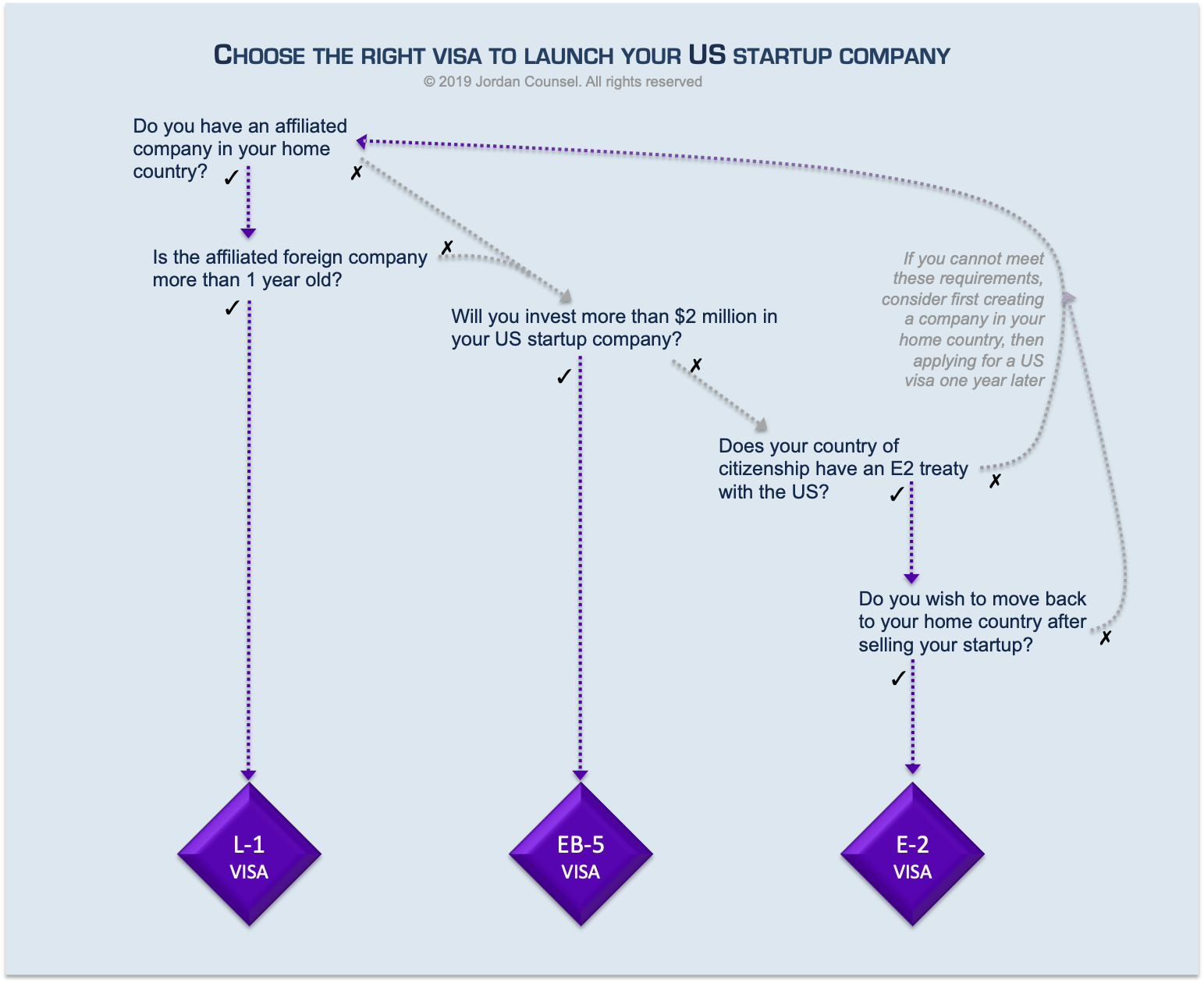While visa requirements are often restrictive, there are fortunately a number of types of visas available that will allow you to move to the US to launch your company there. To give you an initial idea as to the type of visa that might best fit your situation, this article compares key requirements of three popular visas for startups: L1 visa, E2 visa and EB5 visa.
Affiliated company in your home country
- L-1 visa: To be eligible for an L-1 visa you must have worked for an affiliated foreign company for at least 12 consecutive months within the three previous years
- EB-5 visa: There is no requirement for an affiliated foreign company
- E-2 visa: There is no requirement for an affiliated foreign company
Nationality requirements
- L-1 visa: There is no nationality requirement
- EB-5 visa: There is no nationality requirement
- E-2 visa: To be eligible for an E-2 visa you must be a citizen of a country that has signed an E-2 Investor Treaty with the United States
Amount of capital invested in your US startup company
- L-1 visa: The investment needed for an L1 visa typically does not need to be as high as an investment for an E2 visa or EB-5 visa. Nevertheless, when the L-1 visa is to create the company’s first presence in the US, you must submit a business plan with your visa application. The business plan must show a logical connection between the US company’s profitability and the amount to be invested
- EB-5 visa: Including startup costs and salaries for 10 employees for the first few years, plan on having at least $2 million ready to invest
- E-2 visa: While there is no minimum investment amount, your visa application will be stronger if you invest at least $100,000. See our E2 visa investment guideline to get a better idea of the level of investment you should expect to demonstrate in your E2 visa application.
Visa status after sale of your startup company
- L-1 visa: If you have an L-1A visa you can coordinate with your employer to change your immigration status and then obtain a green card. Once you have your green card you will be able to remain in the US even after selling your startup company. To learn more about transitioning from an L1A visa to a green card, see our description of that process.
- EB-5 visa: With the EB-5 visa you can obtain a green card. Once you have your green card you will be able to remain in the US even after selling your startup company.
- E-2 visa: Your E-2 visa is for the sole purpose of directing and developing your startup company. After you sell that company you will not be eligible to renew your E-2 visa.
Number of US citizens (or green card holders) to be hired
- L-1 visa: No specific requirement exists. However, to demonstrate that your foreign company’s new office in the US is real and active, you should plan on hiring at least two to five employees.
- EB-5 visa: Plan on hiring at least ten employees.
- E-2 visa: Although there is no specific requirement to hire American workers, your visa application will be stronger if you demonstrate that your startup business will hire at least two Americans.
Using some of the above criteria, the following flowchart depicts one simplified method of selecting a visa for launching your US startup company. Keep in mind, though, that there are many more criteria to be considered. To choose the right visa that best matches your goals, contact us for an assessment.




